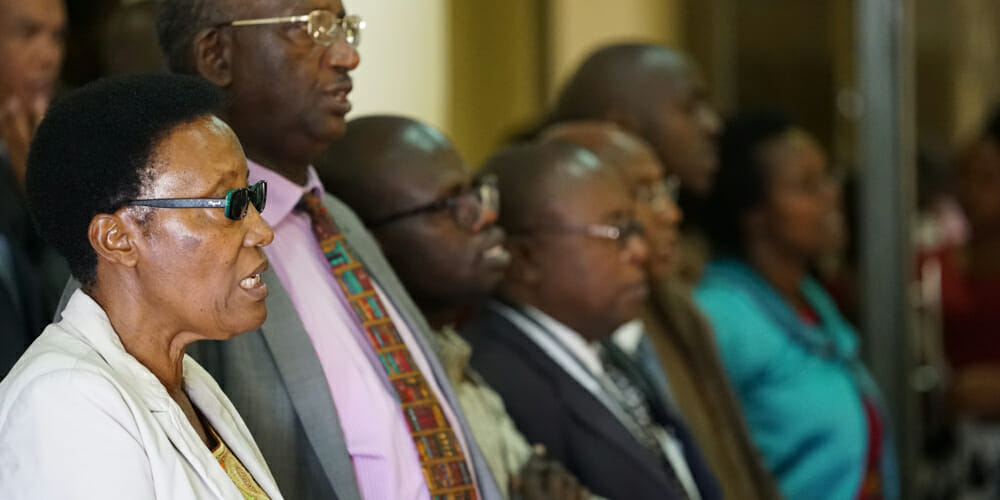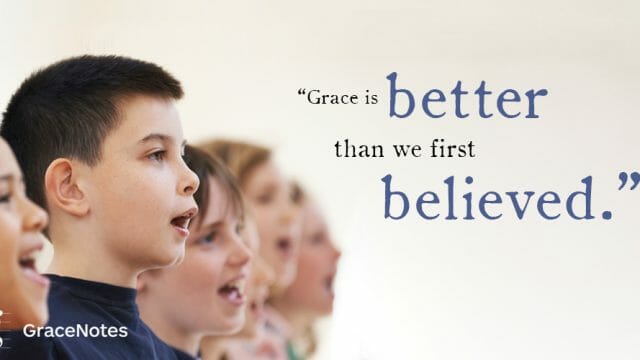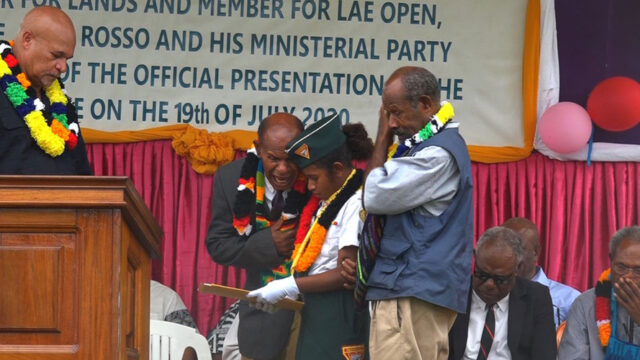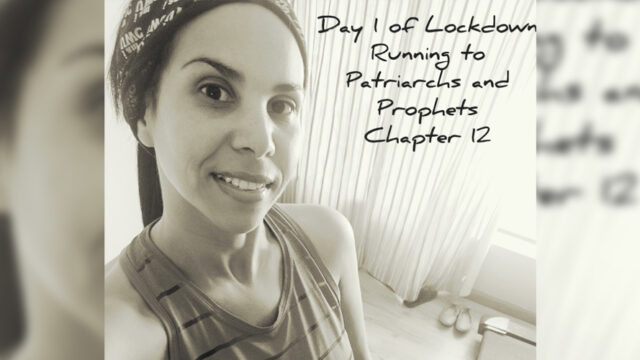The Adventist Pan-African Conference on Dynamic Family Relationships continues with sensitive topics

This is Part 2 of a two part report on the March 1-3 Adventist Pan-African Conference on Dynamic Family Relations. ~ Editors
The Adventist Pan-African Conference on Dynamic Family Relations, a milestone event that brought together the three Seventh-day Adventist Division on the African subcontinent concluded with an additional array of challenging topics affecting African families.
The conference, hosted in Kenya on the campus of Adventist University of Africa (AUA) was organized by the world church Family Ministries department directors Willie and Elaine Oliver, in partnership with Family Ministries departments from the East Central Africa (ECD), West Central Africa (WAD), and Southern Africa-Indian Ocean (SID) divisions.
Marriage Dynamics
Michael Sokupa, associate director of the Ellen G. White estate spoke on two separate topics specific to marriage. The first discussed the distinction between traditional and civil marriage in Africa.
Traditional marriage reflects the involvement of the extended family, and in some cases may include traditional norms such as polygamy, ancestor veneration, common law marriage and marriage of convenience. “Has the church already taken a stand on [these and other] particular forms of traditional marriage?” asked Sokupa as he advocated an evaluation of traditional African marriage by the Church, which in many instances doesn’t even involve the Church.
Sokupa also shared that civil marriage is a growing African trend, requiring only a state official and two witnesses. The practice flies in the face of African custom and introduces tension between the couple and the extended family. However, civil marriage also tends to cut out the Church—a concern for the Christian community, which has sought to provide guidance for the marrying couple and a biblical foundation to the union.
Pointing out that both elements of both traditional and civil marriage are challenging to the Church, Sokupa argued that both tend to marginalize the Church’s involvement, including the participation of Christian marriage counselors.
Sokupa also tackled questions surrounding leadership within the Christian African home. He explained that the Bible demonstrates a “pattern of patriarchal societies,” but looking at various narratives throughout Scripture also reveals unique dynamics within various families.
A good portion of time was spent unpacking the story of David, Nabal and Abigail found in 1 Samuel 25. Abigail’s actions in carefully countering Nabal’s careless ones in the context of a patriarchal society, said Sokupa, reveal a principle for “dynamic leadership in marriage.” He also pointed out the difference in David’s and Nabal’s leadership style, asking ““What kind of leader am I within my household: an autocratic leader or a democratic leader?”
Sokupa concluded with a discussion of “marriage in the context of group dynamics.” He postulated that a couple and a family exist in the context of a group, which requires a form of “group leadership” in marriage, characterized by interdependence. He referenced the biblical call in the book of Ephesians for wives to submit to their husbands, while husbands are called to love their wives as Christ loved the church and gave himself of her.
“The dynamic nature of leadership in marriage needs a careful study,” concluded Sokupa.
The Price of a Bride
Jongimpi Papu, ministerial secretary of the Cape Conference in South Africa, was back with another memorable presentation, this time on the African tradition that calls for a man to pay a price for his bride, popularly called lobola.
Lobola involves a nuanced negotiation between the two families, many times involving a third-party negotiator. The groom’s family agrees to a certain price for the bride, which once agreed upon transfers various marital rights to the groom, including procreation. Papu reported that lobola is “one of the very few African practices that still enjoys acceptance by both Christians and non-Christians.”
Papu then outlined several negative attitudes toward lobola, including the perception that women are regarded as commodities to be bought, that lower income families simply use it as source of income and that lobola may give license to men to abuse their wives.
In the context of these possibilities, “we need to allow God to speak to our culture,” suggested Papu, “so He can tell us what he doesn’t like, even though we may not like what He says.” Papu argued that if some African traditions need to be abandoned, it would be because the Bible, rather than another culture, influenced the decision.
Papu also highlighted some possible benefits of lobola. It is a symbolic gesture in bringing the two families together and fostering mutual respect; it demonstrates that the man is capable of supporting his wife financially and emotionally, speaks to his sincerity, and it reminds the couple that the marriage covenant is a serious undertaking.
Some attendees shared their own journey with lobola, while one participant argued in favor of it saying, “In our country, if lobola isn’t offered, the woman considers herself absolutely worthless.”
After a survey of lobola references in Scripture, Papu concluded that the practice of lobola is neither specifically forbidden in the Bible nor is it specifically promoted. Lobola should neither be encouraged nor discouraged by the church—leaving it as a family matter, he said. However Papu also emphasized that “if lobola is to be practiced today it should be practiced in a way that supports its original meaning and that avoids the potential abuses.”
The Question of Divorce
Grappling with another contemporary family issue in Africa, Kagelo and Boitumelo Rakwena, SID Family Ministries directors, shared insights into divorce on the subcontinent, which is a tangible reality in Africa.
The Rakwena’s reported that African data are consistent with that of Europe and North America with respect to the generally negative impact of divorce in individuals. According to research referenced in the presentation, impact includes: children suffering academically and psychologically, women tending to face poverty even after second marriages; and both men and women facing disorientation, increased anxiety and depression, and disrupted social networks.
A number of factors contribute to increased divorce, according to the Rakwena’s. Changing gender roles and wives joining the labor force has contributed to broken marriages, as well as a waning stigma regarding divorce. Urbanization once again surfaces, this time as a factor affecting divorce rates. Families living in cities together or represented by one spouse in search of financial stability, are now further from the extended rural family. In this case, the positive effect of the communal nature of the African family, is lost—along with both the accountability and the wisdom found in community.
The Rakwena’s also highlighted that there is correlation between the divorce rate and the age of the bride. “Education and an increase of years before marriage produce mature individuals who are more likely to stay married, especially women,” they reported.
The presentation concluded with a series of recommendations, including African parents encouraging their children to stay in school longer. Others included, family life education for ministry leaders for how to serve people from broken families, local churches becoming “villages” where families feel supported and encouraged, and seminars for young couples. The Rakwena’s also provided some approaches to addressing domestic violence, a precursor to broken homes and divorce.
Principles for Better Marriages and Stronger Families
The event was peppered throughout with general insights on how to strengthen marriage and family.
Delbert Baker, AUA vice chancellor with his wife Susan Baker, AUA director of Research and Faculty Development and associate professor shared five transformational values that positively affect marriage and family relations. “In the context of the Great Controversy,” said Delbert Baker, “the devil would have us ignore the family, overlook the family; surely he would have us destroy it.”
To counteract this, Baker introduced the first of the transformational values, commitment. “One of the reasons for the pandemic of divorce is that there is there is a lack of commitment in the family. We’re not fighting for the family,” he said. Love followed as the second value. It comes down to, “I will give my family the best that I have,” shared Baker.
Susan Baker introduced the third transformational value, resilience—the ability to recover quickly from difficult moments. Baker explained a helpful equation for increasing resiliency: E + R = O, or Event + Response = Outcome. The equation emphasizes the role of response to challenging situations which can have a significant impact on outcome. The fourth value is forgiveness. “Forgiveness is an attribute that’s divine,” said Baker, recognizing the complex nature of forgiveness. “It is not a human attribute.” While encouraging all attendees to forgive both others and themselves, she made a point to clarify that “forgiveness doesn’t mean that you weren’t wronged.”
Delbert Baker unpacked the last value that families would benefit from, sanctification. In this context, Baker defined the word as meaning “the process that a marriage or family experiences to be holy or set apart for a special use; to continuously advance in a desired direction of competency; to obtain family-efficacy.” This is strategic planning for families, who establish spiritual values based on a deep understanding of why they are important to them and who then live them out. “Here is where your strength comes from,” he concluded.
Blasious Ruguri, ECD president and AUA chancellor also weighed in with three steps to a healthy family based on the experience of Jacob returning to Bethel—where he first encountered God after a painful experience (found in Genesis 35). The principles center on the three instructions given by Jacob to his family.
Principle one, explained Ruguri, is to put away foreign gods, including pride, jealously, anger, blame, lack of forgiveness, hatred, backbiting, and technology addiction. He spent significant time on the last one. Touting the negative effects of technology on the home, Ruguri offered a passionate wake up call. “Your laptop and your smart phone have stolen the time with your wife,” he said. “This mobile phone is a monster and it has killed families!”
Ruguri’s second step involves couples and families purifying themselves, by identifying harmful influences. “You’ve got to disassociate yourselves with all that is dirty and is defiling your marriage and your family,” appealed Ruguri. Closely related to the second, Jacob’s third instruction and Ruguri’s final principle is “change your clothes.” “I’m so glad, that no matter how dirty your family’s spiritual robes have gotten,” encouraged Ruguri, “no matter how stained and sullied with sin, and selfishness your marriages may have become, that Jesus can change your clothes.”
The Oliver’s capped off the event with a principle for stronger marriages and families found in the New Testament parable of the ten virgins waiting for a wedding to start. The only difference between the two sets of virgins was that one had extra oil, and the others did not. “Our families need replenishing oil,” they concluded. “oil such as grace, empowerment, forgiveness, and unconditional love.”
A Contextualized Conversation
As the conference came to an end, attendees expressed appreciation and hope. “I’m really impressed with the conference,” said Kebby Chumuna Shibeleki, a pastor from Zambia and AUA graduate student. “It really addressed the issues that we face in Africa. My hope is that leaving this conference we can take something back to help our church members.”
Division administrators were grateful for another reason as well. “Even though marriage is a universal matter,” said WAD president Elie Weick-Dido, “we were able to look at marriage and family through our culture.”
“To me, it is significant to have almost all of the presenters as Bible scholars bred in Africa who know the culture of Africa,” concluded ECD president Ruguri. “They are addressing these things from a very unbiased perspective. Here we cannot accuse any outsider of coming and despising our culture. I think this is probably the best treatment of the problem we have ever had.”
A TANGIBLE FOLLOW UP: RESOLUTIONS
Below is the list of the resolutions voted at the closing event of the Adventist Pan-African Conference on Dynamic Family Relations on Saturday night, March 3, 2018.
- To develop a renewed focus in the centrality of Family Ministries in all of the strategic plans and budget priorities of the church, given its important and productive role in church life, nurture, and outreach;
- To more assertively develop and promote the role of the family in TMI (Total Member Involvement – Total Family Involvement), Mission to the Cities, and Comprehensive Health Ministries;
- To reaffirm the family as the place of training and development for the transmission of Biblical principles, teachings and understanding, primarily for the discipleship of children, modeling public service and outreach;
- To develop pathways and joint projects of Family Ministries with the 26 educational institutions of higher education in the three African Divisions;
- To explore further collaborations with Family Ministries and other departments with the goal of developing greater synergy in ministry;
- To widely promote the proceedings of the Pan-African Family Conference to the world field via websites, online products, social media and print;
- To develop a list of practical ways Family Ministries can more assertively be brought to the attention of all levels of the church;
- To recommend to the Adventist University of Africa to launch a new Doctor of Ministry cohort in Marriage and Family as soon as possible to build capacity in adequately ministering to family-related concerns;
- To recommend to church administration the need to revisit the official church policy on polygamy to advance a more biblically-based position;
- To recommend to administration the need to be more intentional about preserving the stability of pastoral families when considering moving them to new assignments;
- To ask administration to develop a more precise set of guidelines to ascertain what constitutes an acceptable marriage for members.
- To conduct research on Adventist families in the three African Divisions to develop intervention strategies from an evidence-based perspective.








